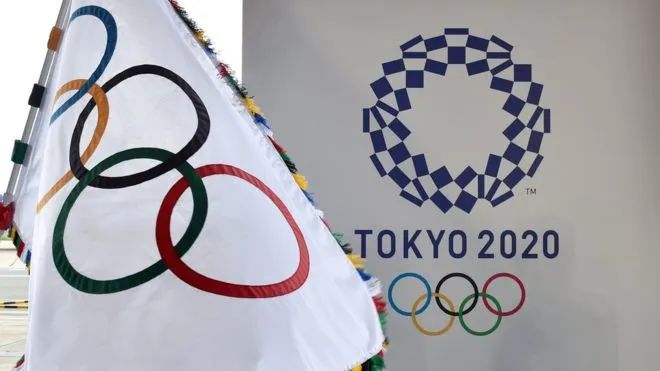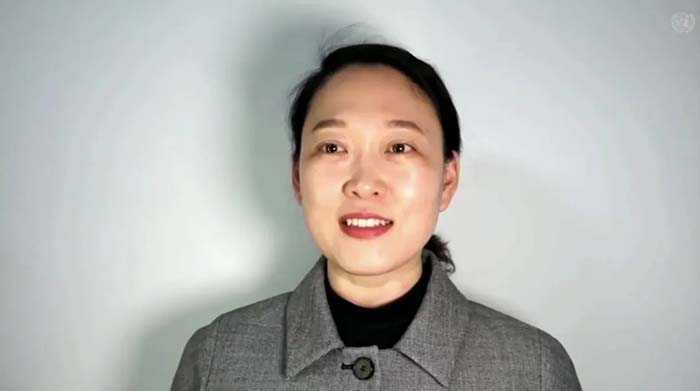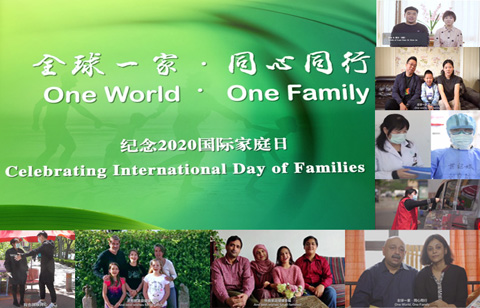Women and the Olympic Games: Towards Greater Gender Equality A Dialogue with Peking University Professor
Date:2021-8-10 9:50:07 Views:
Competitive sports used to be dominated by men. With efforts made over more than a century, women have been able to equally participate in the Olympics as men. Women accounted for nearly 49 percent of the athletes of the Tokyo 2020 Olympics, plus a record number of women competed in the Tokyo 2020 Paralympic Games. Tokyo 2020 was the most gender-equal event of its kind in history, according to the International Olympic Committee (IOC). How should we understand the concept and principle of gender equality in the Olympic Charter? What are the characteristics of the changing status of women in the Olympic movement? What factors are involved in the success of Chinese women in the Olympic Games?
Dong Jinxia, Director of the Research Center for Women and Children in Sports at Peking University, was recently interviewed by China Women's News and shared her opinions on these questions. The following is the interview in question-and-answer format.
Women's Participation Boosts Transformation of Olympics
Q:
In ancient Greece, women were barred from participating in the Olympic Games or even being spectators. Baron Pierre de Coubertin, founder of the IOC and known as the father of the modern Olympic Games, also insisted that women should not be allowed to participate in the events. At the Paris 1900 Olympic Games, the second modern Olympic Games, 22 women competing in sailing, lawn tennis and golf, participating in the Olympics for the first time even though women's events were not officially approved by the IOC. Now women are a vital force in the Olympic movement. What do you think about the significance of women's participation in the Olympics?
Dong:
The Olympic Games are undoubtedly one of the greatest social powers of the day in terms of its size and impact. Women showcase their skills, courage and intelligence in more than 30 sports that used to be considered displays of men's strengths. They have proved to the world that as long as women are given the opportunities, they will make outstanding achievements in all fields of society just like men, and even do better than men. It can be said that the full participation of women has transformed the modern Olympic Games from the traditional display of men's characteristics to a modern one which shows diverse characteristics of men and women and has consistently, strongly shook the long-existing human behavior, paradigms and androcentric thoughts.
Q:
At the IOC Executive Board meeting held in Rome in 1975, it was officially declared that "athletes of both sexes shall be treated equally" and this was included in the Olympic Charter. The charter defines the mission and functions of the IOC "to encourage and support the promotion of women's participation in sport at all levels and in all institutions in order to implement the principle of equality between men and women." How should we understand the concept and principle of gender equality in the Olympic Charter?
Dong:
From my point of view, the gender equality advocated by the Olympic Charter emphasizes equal opportunities for participation of men and women, rather than equal results for men and women in competitions. All women, whether they are professional athletes or not, whether they come from schools, clubs, provinces and cities, national Olympic committees or the IOC, whether they want to attend regional competitions or international events, and whether they want to be athletes, coaches, referees or officials, should have equal opportunities with men.
Since the 1990s, the IOC has made a series of policies and regulations to promote gender equality. For example, in 1991, it was stipulated that any event that applied to enter the Olympic Games must include women's participation in its sub-events at least. In recent years, the number of mixed events of men and women has been increased. The national Olympic committees were encouraged to have their flag carried by one female and one male athlete at the Tokyo Olympic Games opening ceremony.
Q:
There were very few events for women athletes at the Paris 1900 Olympic Games. At the Atlanta 1996 Olympic Games, 39.8 percent of the events were open to women participants, and the figure rose to 44 percent in the following Sydney Olympic Games. Women were allowed to compete in all sports at the London 2012 Olympics. Does the inclusion of women in Olympic sports reflect that women's athletic ability has been increasingly recognized?
Dong:
The rise in the number of women's sports at the Olympics is the result of women' efforts in challenging and breaking stereotypes, which drove the IOC to change its rules and include more women's sports. For example, given the lack of women's events, French women launched the Women's Olympic Games between 1922 and 1934. They urged the IOC to add women's events to the Olympic Games and stopped holding the Women's Olympic Games until the IOC agreed to add women's events. For the same reason, British women led a boycott of the 1928 Olympics.
After the thriving of women's liberation movement in North America and Europe in the 1960s, sports considered "harmful to women" in the past were included in the women's game plan gradually, such as hockey (1980), judo (1992), football (1996), weightlifting, triathlon (2000), wrestling (2004) and boxing (2012). And the outstanding performance of women athletes in various sports has overturned the public perception of women's ability.
Q:
With the impact of flourishing world-wide women's liberation movement, the status of women in the Olympics has been rising. However, while the gender gap has been narrowed on the field, it is not to be ignored that there exists an average salary gap between men and women athletes off the field. Does this mean there is still a long way to go for truly achieving gender equality in the Olympic movement?
Dong:
Although complete equality will be achieved at the Paris 2024 Olympic Games in the number of men's and women's competitions and the number of men and women participants, there is a significant gender pay gap especially in sports such as football and boxing. In addition, the proportion of women is significantly lower than that of men among coaches and leaders of sports institutions, and especially at higher levels. Gender equality has been achieved faster and earlier on the playing field than in leadership, meaning that real gender equality in the Olympic movement still has a long way to go.
'Never Give Up' Is Core of Women's Development, the Olympic Spirit
Q:
Among the countries ranking the top 20 on the medal tally of all Olympic games, there is a widespread imbalance in the number of the countries' men and women athletes. China, as one of the top 20 countries, has the most balanced gender ratio, with even more women participants than men. Moreover, Chinese women athletes brought in 66.12 percent of China's gold medals. It was no accident that women won three gold medals for the Chinese delegation on the first day of the Tokyo 2020 Olympic Games. What factors are behind the success of Chinese women in the Olympic Games?
Dong:
The success of Chinese women in the Olympic Games is a result of the comprehensive effect of factors from both micro and macro aspects. It has its roots in that the Communist Party of China always advocates the concept of gender equality and China has achieved rapid economic and social development since the reform and opening up, as well as the national strategy for the Olympic Games. The full support of family and men and the strong will and hard-working spirit of women athletes are also important.
Taking an Olympic-targeted national strategy for example, men or women who can win the Olympic events for the country will enjoy preferential policy support. Given that Chinese women athletes are more likely than men to win medals in the Olympic Games, they have become the main beneficiaries of the strategy. Moreover, the popular practice of employing male training partners for female athlete reflects the importance of men's support.
Q:
Women have made remarkable achievements in the Olympics, and demonstrated the sportsmanship represented by the pursuit of excellence, fair competition, peace and friendship and respect for opponents. What are the implications for Chinese people, especially women?
Dong:
Outstanding women in sports are representatives of outstanding women in all walks of life. At an activity themed on women and the Olympics organized by the Beijing Women's Federation and Peking University on July 9, Li Yan, a speed skating champion and top coach, noted that the "faster, higher and stronger" spirit means for an individual that one must keep challenging his/her limits, overcoming difficulties and pursuing excellence. Li said that this spirit is not only reflected in athletes and coaches but also in all workers of sports industry and fans. Women who love sports learn to be self-motivated when they are participants, and learn to work hard and balance work and life as they move towards their goals.
Success, failure, applause and tears — personal growth in the pursuit of the Olympic spirit is the best expression of the spirit, according to Wang Liping, a race-walking champion of the Sydney 2000 Olympic Games. The women athletes who have achieved great achievements in the Olympic Games set good examples for the independence and development of Chinese women and for the realization of gender equality. Never giving up is the core of the development of women and the Olympic spirit.
Q
Data show that 23 is the prime age for athletes. The average number of medals achieved increases with the age of athletes until 27, and then decreases with their age. Athletes older than 45 have little chance of obtaining medals. The 46-year-old Uzbek gymnast Oksana Chusovitina finished 11th in the competition on July 25 at the Tokyo 2020. What do you think about that?
Dong:
The data above may be statistics made without taking into account gender and event differences. From what I've observed, the golden age for women athletes may be even earlier. Given how gymnastics is believed to be a sport for younger bodies, the competitive gymnastics in which Oksana Chusovitina participated will even regard a 20-year-old woman as an "veteran athlete." It is amazing that the 46-year-old gymnast dared to compete against a girl 30 years her junior and met the requirements of overcoming her own weight and completing difficult movements. She has challenged fertility and age taboos on women athletes and proved that sport is not just a privilege for the young, but a right for all, no matter men and women, old and young.
Besides Chusovitina, many women at home and abroad who are married or have given birth to children, such as China's Liu Hong and Wu Jingyu, still compete in the Olympic Games. They set examples of exercising for life and staying youthful for women, and have helped promoting the progress of social values on women's marriage, family and physical condition.



